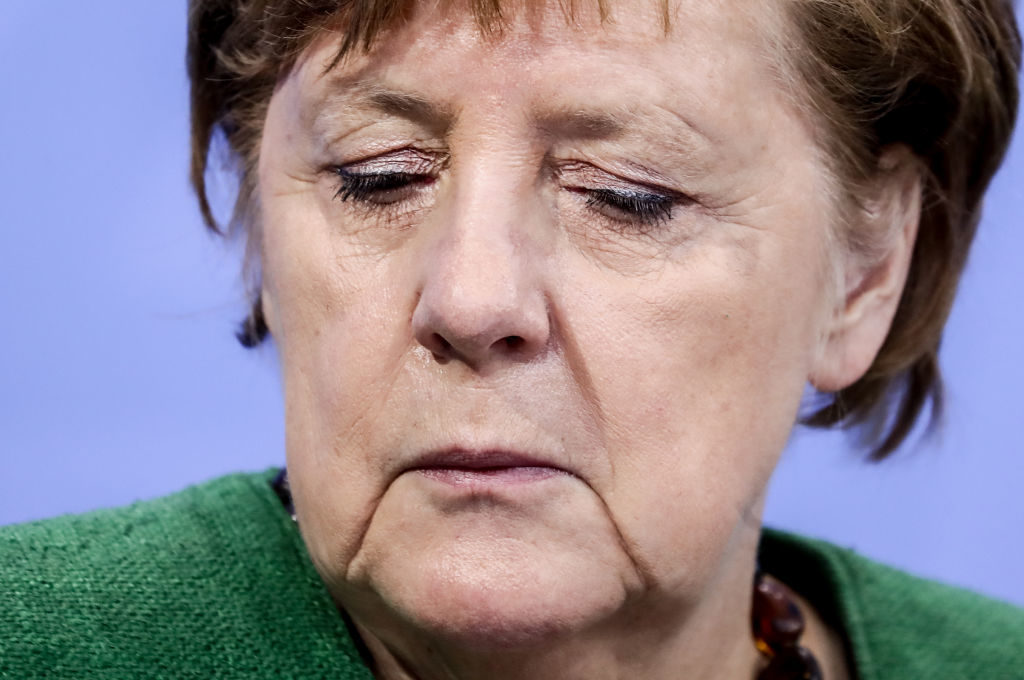A year on from the onset of the COVID crisis, Angela Merkel had grim news for Germans Tuesday morning: our country is in the midst of a ‘new pandemic’. ‘The British mutation has become dominant,’ she warned, as she announced a strict new lockdown, which will shut almost all shops and churches over Easter.
The new lockdown rules were thrashed out in a tetchy 12-hour meeting between the chancellor and Germany’s state premiers. It used to be EU summits that prevented Merkel from catching some sleep. Not any longer. The leaders struggled to find common ground on an approach to contain the spread of coronavirus, amid a worrying spike in infections which has seen cases climb to 7,500 a day. Eventually, in the early hours following a lengthy interruption, Merkel prevailed with her idea to shut down most of public life over the holidays.
Many Germans will despair at the announcement, with the rules set to remain in place until April 18. Churches will be asked to hold services online. No more than five adults from two households will be able to meet over the five-day Easter period. And only some food stores will be allowed to remain open during what is usually a period of festivity in Germany. The ‘emergency brake’ will also halt further re-openings and will apply to areas exceeding 100 new cases per 100,000 people over a seven-day period. If an area has an incidence rate of over 100 for three consecutive days, harsher lockdown measures will once again apply.
In the past few weeks, case numbers have reached levels that authorities say will overburden intensive care units. Merkel warned that Germany needed to ‘break the exponential growth of the third wave’, arguing that her country and Europe face an uphill battle to fight back against the spread of coronavirus variants.
‘It really makes you a bit wistful about what we could have already achieved,’ Merkel said, adding that the mutated virus has now ‘basically eaten up’ earlier gains. Germany was in a ‘race against time’ to vaccinate its population, she said.
This vaccination race is proceeding painfully slowly. So far, only around nine percent of Germany’s population has received at least one shot. The country — hailed for its early response to COVID-19 — is lagging behind others in the Western world, including the United States and Britain. Hoping for the vaccine to solve all problems could turn out to be an exhausting affair for Germans.
But while Germany’s leaders agreed to the new rules, they could soon pay a heavy price for how this crisis is unfolding. Germany is in the midst of a ‘super election year’ and the restrictive policies could dent reelection prospects, even if, for now, recent surveys show that many Germans are still in favor of harsh measures.
Despite these concerns, the powerful state premiers have not managed to find any viable alternatives to Merkel’s strategy. Instead, they remain supportive — at least in public — of the view that life and human interactions in Germany should be reduced to the absolute minimum. It seems that, for now, locking down again is the least worst option. But how much longer will Germans tolerate their lives being put on hold?
This article was originally published on The Spectator’s UK website.


















